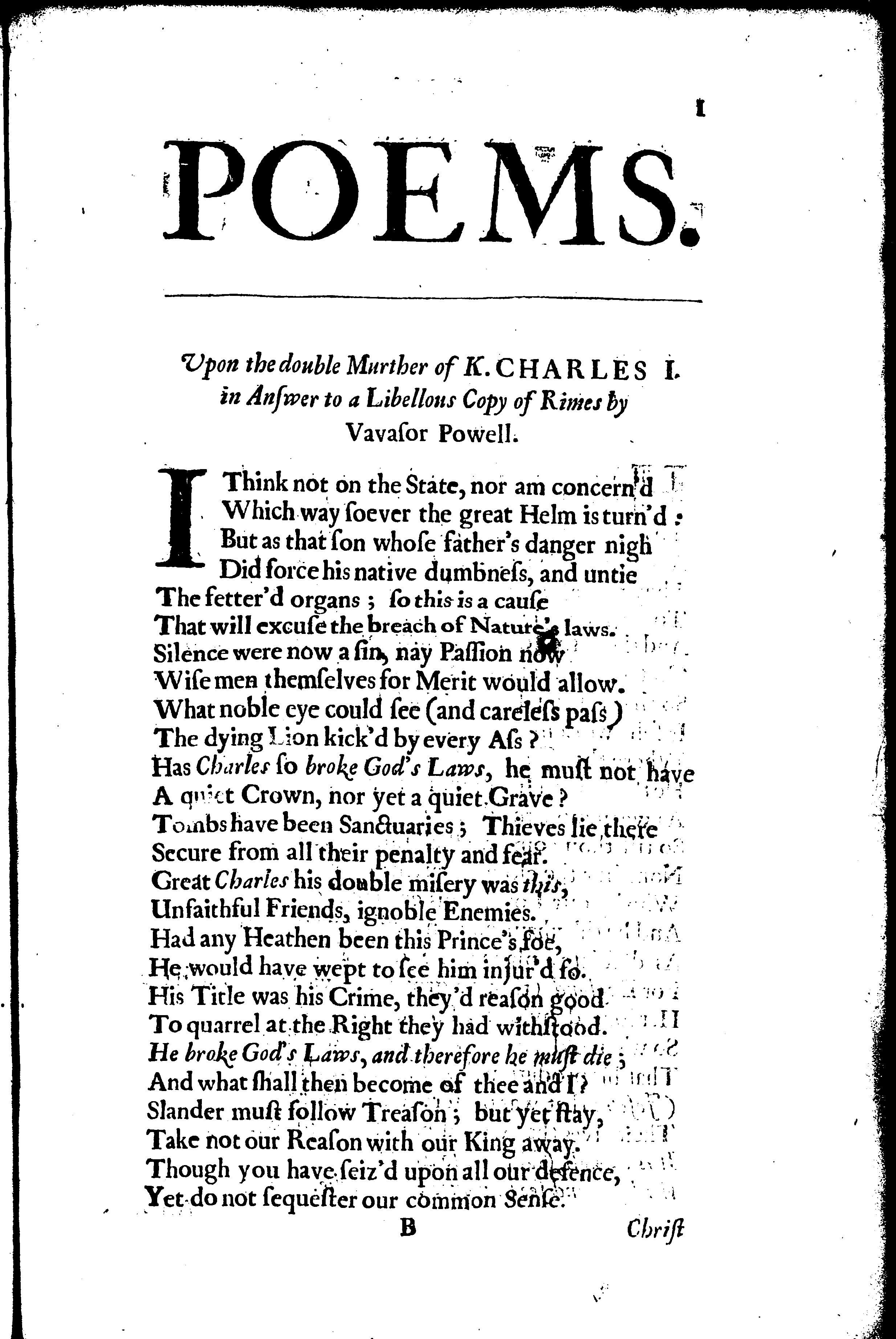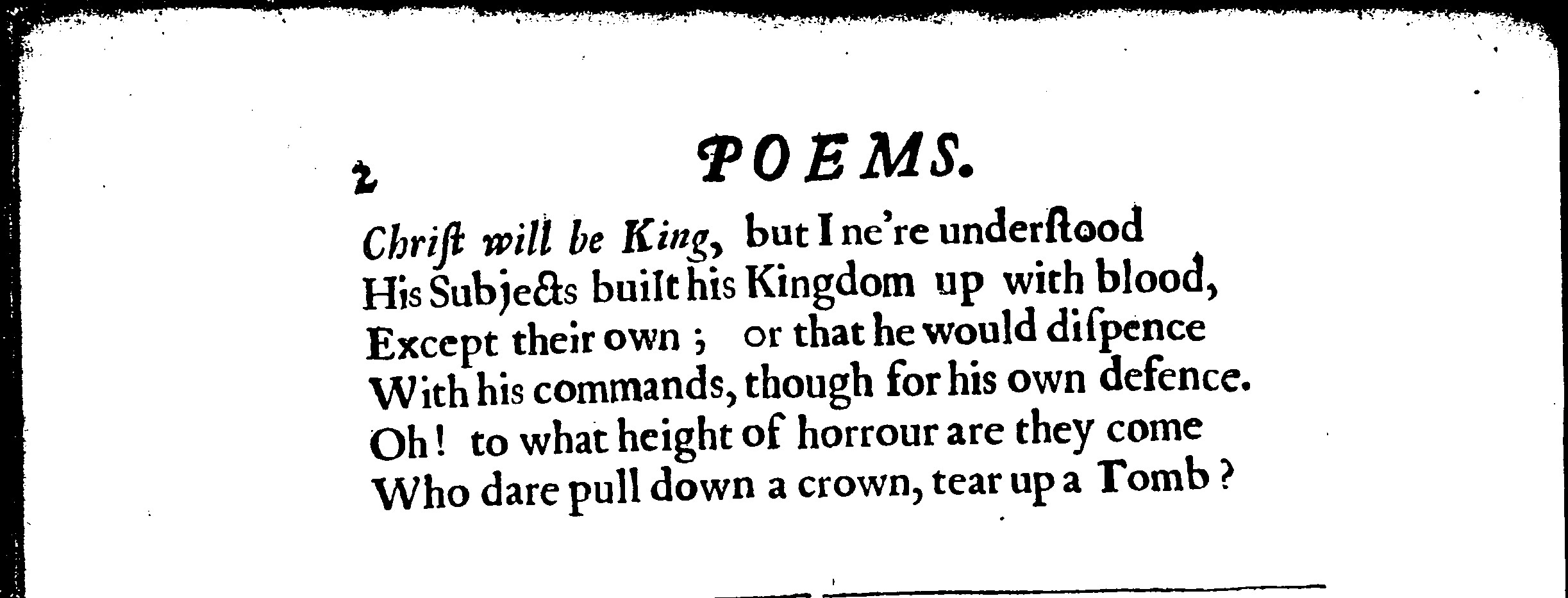"Upon the Double Murder of King Charles I"
By
Katherine Philips
Transcription, correction, editorial commentary, and markup by Staff and Research Assistants at The University of Virginia, John O'Brien, Sara Brunstetter, Rachel Retica
1
Upon the double Murder of K. CHARLES I.MurderMurderCharles I was beheaded on January 30th,
1649.
in Answer to a Libellous Copy of Rimes made by
Vavasor PowellPowellPowellVavasor Powell was a nonconformist Puritan preacher who
published poetry in praise of the execution of Charles I. Philips wrote in
respond to Powell's poem.
1I think not on the State, nor am concern’d
2Which way soever the great Helm is turn'd
3But as that son whose father's dangers nigh
4Did force his native dumbness, and untie
5The fetter'dfetteredfetteredShackled or chained (Oxford English
Dictionary). organs; so here's a fair cause
6That will excuse the breach of Nature's laws.
7Silence were now a sin, nay Passion now
8Wise men themselves for Merit would allow.
9What noble eye could see (and careless pass)
10The dying Lion kick'd by every
AssLionLionPhilips is referencing an
Aesop fable in which a dying lion is attacked by several animals seeking
their revenge on him. After being kicked by an ass, the lion declares:
"this is a double death."?
11Has Charles so broke God's
Laws, he must not have
12A quiet Crown, nor yet a quiet Grave?
13Tombs have been Sanctuaries; Thieves lie there
14Secure from all their penalty and fear.
15Great Charles his double misery was this,
16Unfaithful Friends, ignoble Enemies.
17Had any Heathen been this Prince's foe,
18He would have wept to see him injur'd so.
19His Title was his Crime, they'd reason good
20To quarrel at the Right they had withstood.
21 He broke God's Laws, and therefore he must
die;
22And what shall then become of thee and I?
23Slander must follow Treason; but yet stay,
24Take not our Reason with our King away.
25Though you have seiz'd upon all our defence,
26Yet do not sequestersequestersequesterTo
confiscate or take forcibly (Oxford English Dictionary). our
common Sense.
2
27But I admire not at this new supply:
28No bounds will hold those who at Sceptres fly.
29Christ will be King, but I ne're
understood
30His Subjects built his Kingdom up with blood,
31Except their own; or that he would dispence
32With his own commands, though for his own defense.
33Oh! to what height of horrour are they come
34Who dare pull down a Crown, tear up a Tomb!

